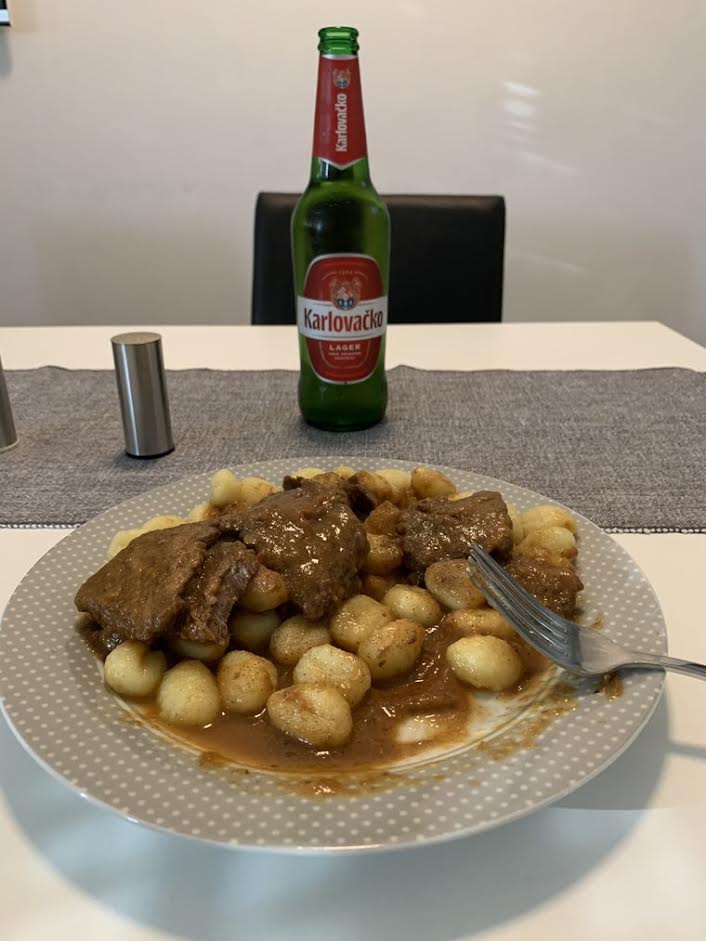Croatian Returnee Reflections: Mike Simundic, from British Columbia to Dalmatia
October 5, 2022 - Whisper it quietly, but more and more people are relocating to Croatia from the diaspora. In a new TCN series, we meet them to find out how they are faring and what advice they have for others thinking of making the switch. Next up is Mike Simundic from British Columbia, Canada to Dalmatia (Editor's note: being a Dalmatian, Mike is going slow with the full move, but has been building up to it with longer stays over the last two years).
My name is Mike (Marijan) Šimundić; I was born and raised in British Columbia, Canada, and am the son of Croatian emigrants. My work is in the technology sector, but my exact job is hard to explain; not even my parents fully understand what I do. The best explanation I've read so far is "Mike does mysterious things that nobody can fully understand. He just pushes a few buttons, makes a few phone calls, and bam, things get done".
As the son of Croatian emigrants from Split-Dalmatia County and as a foreign-born Croatian I have three parallel identities. I am a Croatian, a Dalmatian, and as my family is from a small village that is part of the Imotski area, I’m also an Imoćanin. From what I’ve seen and been told, there’s always someone from that area, and I’m fortunate to be among them.
My parents left during the SFRJ times to start a family in a more stable environment, which ended up being Canada, and I'm very grateful to my parents for making the choices they did so I could grow up to write this piece. However, I often wonder what my life would be like had I been born in and grew up in Croatia, if only for a little while. Fortunately, over the last 10 years, my affinity for Croatia has intensified, and I've experienced that intangible feeling of 'home' every time I visit, which I rarely feel anywhere else.
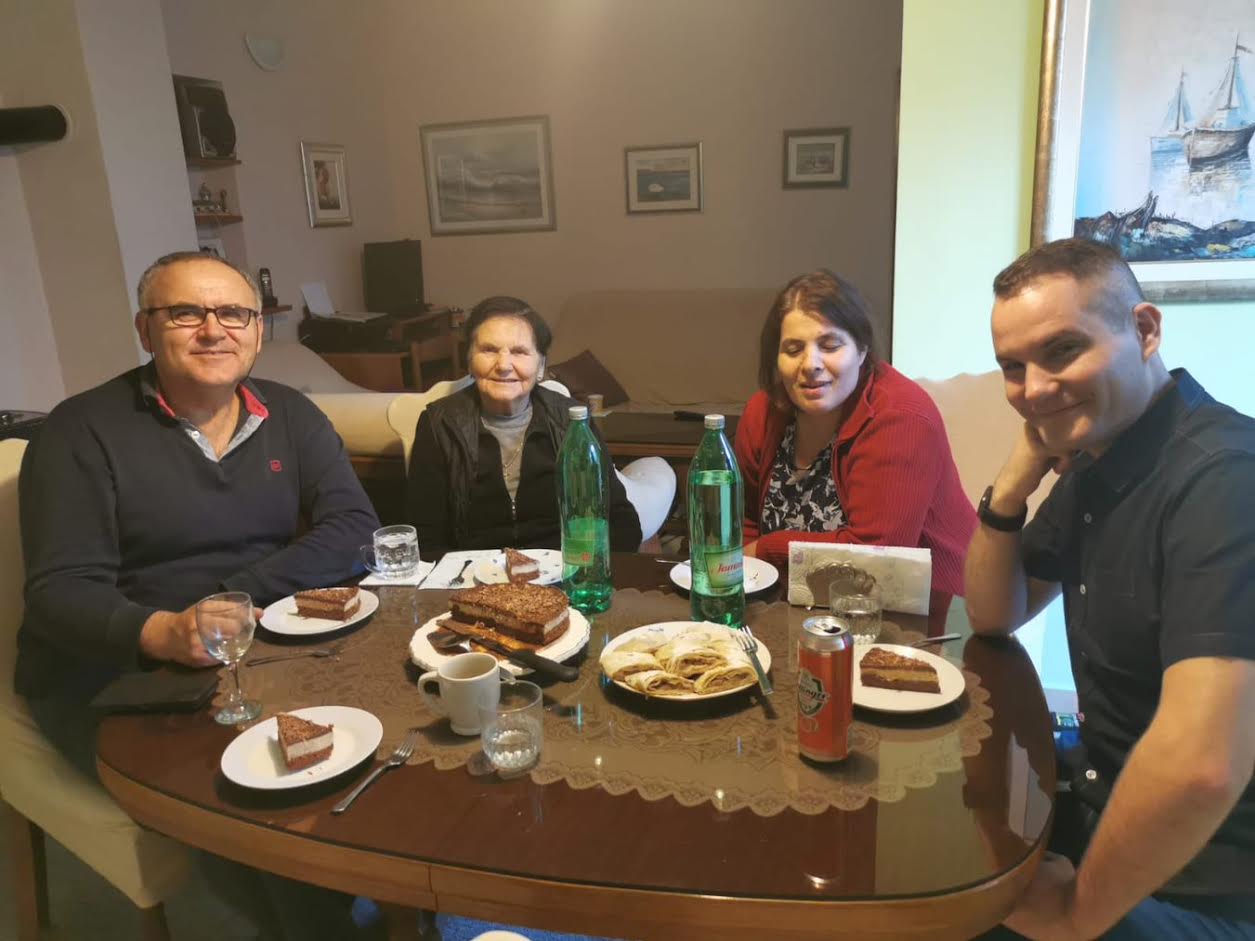
1. You made the switch to Croatia. Tell us a little about the decision process and how long it took for you to get on the plane.
Since 2012 I started having idle thoughts about making the move to Croatia as I slowly felt more like I was not where I belong. In 2012 I submitted my citizenship application as I saw potential with Croatia’s ascension to the EU and imagined what I could do with my life. During a work trip to Ottawa in 2013, I was able to visit the beautiful Croatian consulate thanks largely to a family friend Zvonimir Aničić, who is the Vice President of Croats Abroad, which is an advisory board for the Croatian Government. Serendipitously, while speaking to the Ambassador to Canada, one of the consular officers asked me to repeat my name as I introduced myself using my Croatian name to keep me thinking in Croatian. This time, I stated my legal name, and as if by magic, she produced my ‘rješenje’, and the few consular officials that were present congratulated me as from that moment on, I was a Croatian citizen. It was one of the happiest moments of my life.
Switching countries is no easy task. I'm a planner, and as a planner, I need to think through as many aspects of what I'm trying to do before making decisions that I cannot unmake. For context, what started as idle thoughts in 2012, turned into soul searching in 2020, and now in 2022, there is no alternative for me, only progression towards my goal. I've mostly figured out what options I have on where I can live vs. where I want to live, what jobs I can do vs. what jobs I want to do, etc., however, the part that I'm missing and still struggling with is finding a job in the technology industry in Croatia that is a fit for me. I'm not going to give up, as it’s a matter of time.
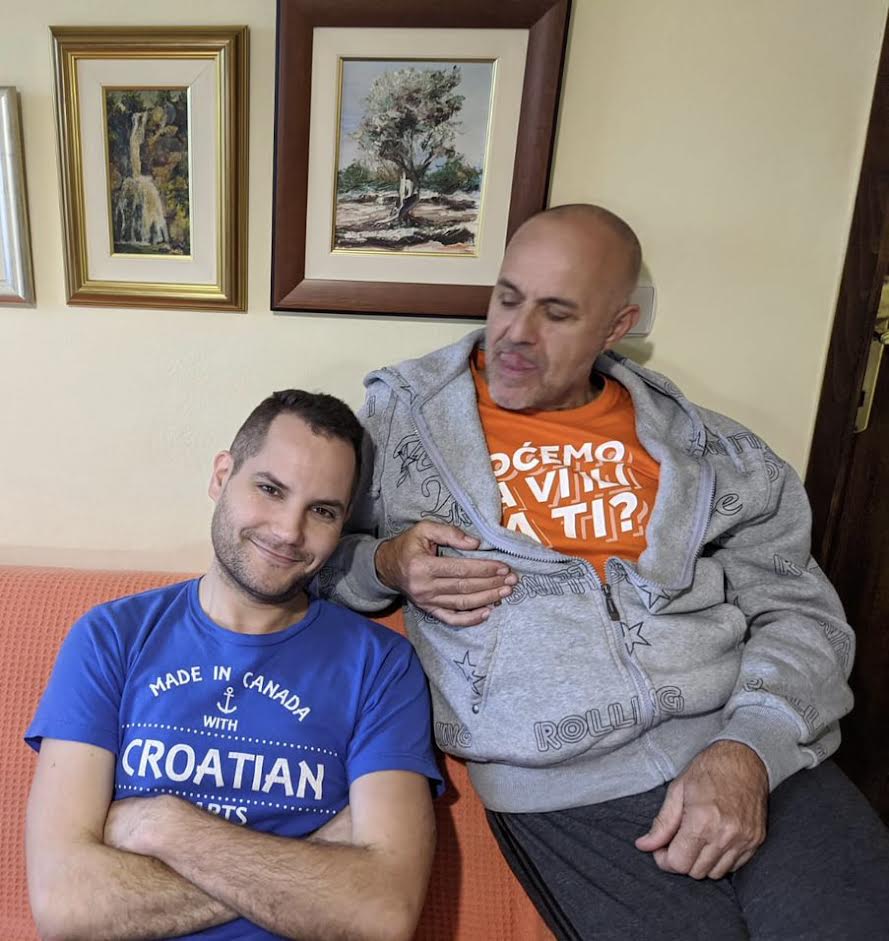
2. What did your family and community back home think of your decision at the time?
Generally speaking, my family in Canada and Croatia admire my tenacity to make my dream a reality. Although, I'm sure they quietly question why I would make such a move. It's unusual, but not uncommon for someone who was born and raised in a western country (with an Eastern European upbringing) to want to return home, where things won't be so easy and as a non-native speaker of the language, there will much I won't understand, but I'll have to learn. I've subconsciously regarded my trips to Croatia over the years as pilgrimages that I considered essential and nourishing, which collectively (re)built my very strong sense of 'home' as soon as I get off the plane in Zagreb or Split.
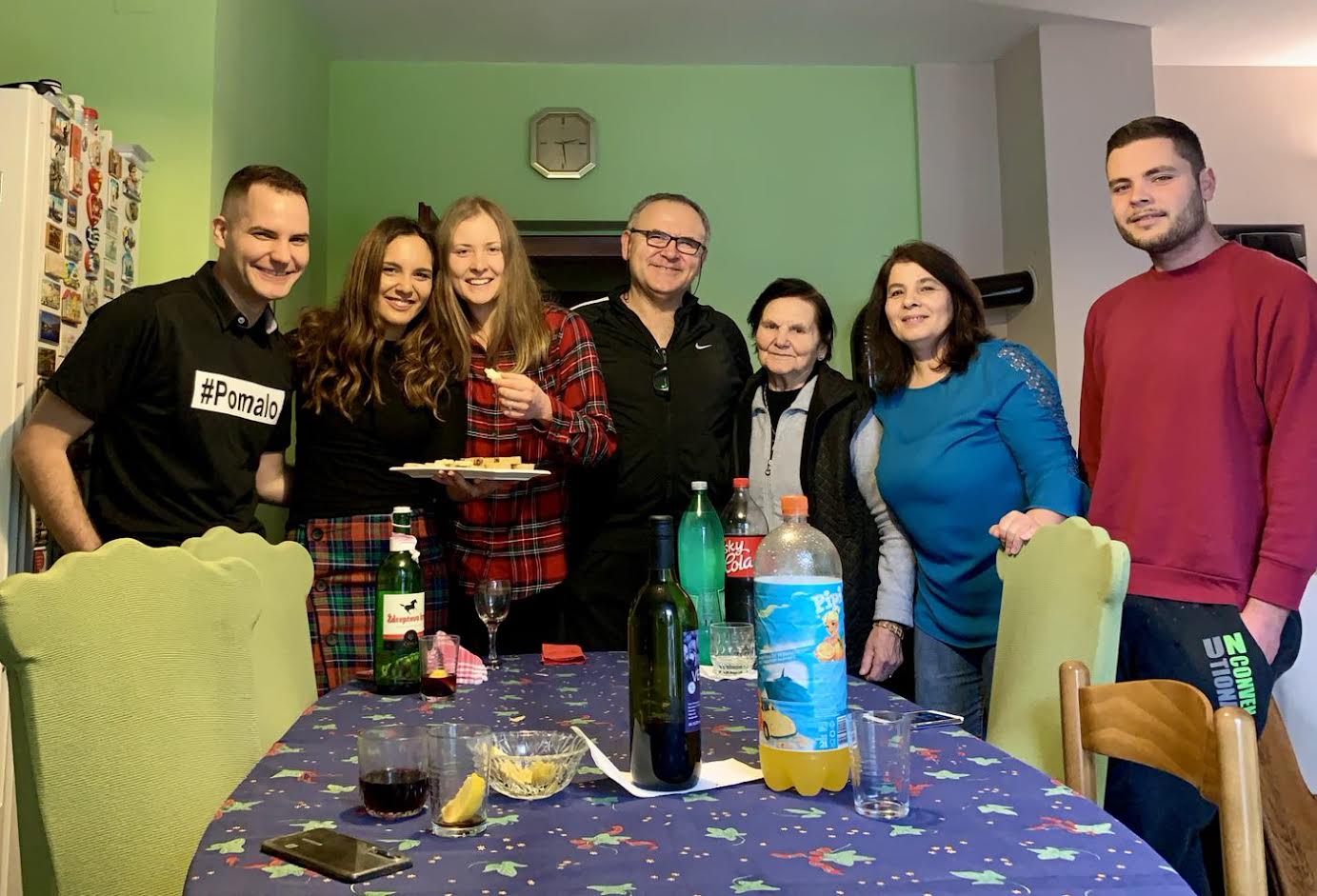
3. Where did you get your information about the realities of Croatia prior to coming?
I've been visiting Croatia on and off between 1994 and 2013, then more consistently since 2013 for vacations to see family and learn more about how things 'worked' in Croatia, and I always left feeling a little smarter. I was also fortunate to spend a total of 9 months over the last two years in Croatia, specifically in Split, which gave me lots of perspective on day-to-day life and allowed me to pretend to live in Croatia while tending to family matters. It wasn't easy as my work schedule went from 15:00 to 01:00 most days, sometimes later, to fulfill my commitments to my current company, which was kind enough to allow me to work internationally for a period of time I was in Croatia tending to family matters. Living in Croatia is more different than it is the same. However, I was impressed by some of the modernization of payments and services, especially through the e-Građani portal. However, I also learned that renting a flat was not straightforward, nor was it easy, and I was very fortunate during my last trip, that my aunt knew someone, that knew someone who had an empty apartment that fit my needs precisely, otherwise, I would not have been able to visit like I did. Proof that relationships are an essential part of daily life in Croatia.
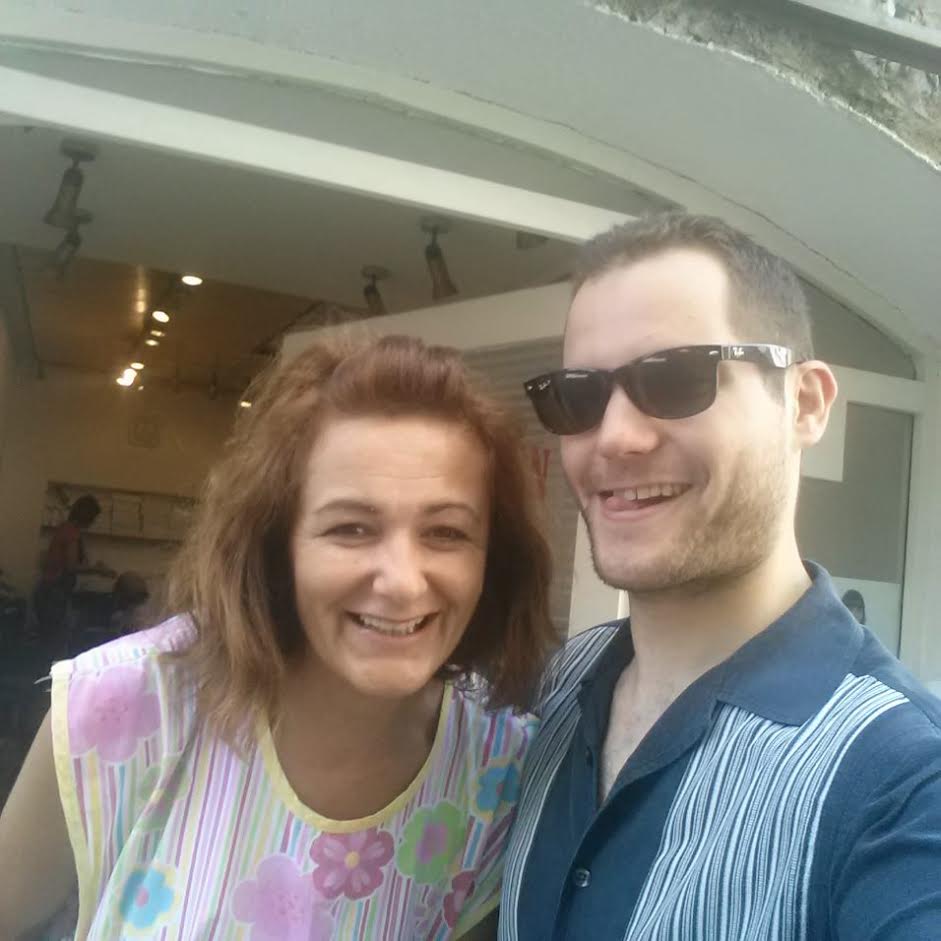
4. What were you most nervous about making the switch? What was your biggest fear, and what was the reality of what you found?
Starting over is never easy, and fortunately, I had to do that recently, so I have some experience. However, starting over in another country will be different. I've spent years and decades forming solid relationships with friends, professionals, and the like, which allowed me to have a solution/contact for any problem that came up. When I'm able to make the move, I'll have to start over again and seek out new friends (some of which I've already made, thankfully) and professionals to support me when I need help with something that is not in my 'wheelhouse'. I wouldn't say I have any fears about doing this, but I'm not excited about leaning on other people's connections when I need to as I prefer to make my own. However, to learn how to find the right people, you have to start with good people around you, and that's something I'm looking forward to. I will have to un-learn to be stubborn and do things the hard way and instead not be apprehensive about asking for help from others when they're more than willing to help you at a moment's notice.
5. Think back to the time before you arrived. What were your perceptions about Croatia, and how were they different from the reality you encountered?
When I first remember visiting Croatia as an adult, my knowledge of Croatian wasn't the greatest; I didn't know where I was going exactly, how I was getting there, etc. Someone came to pick me up, I stayed with family, didn't eat anywhere but with family, and was transported everywhere, which was nice but didn't give me much exposure to how things really were. This reality was rather jarring as my perception was based on spotty childhood memories in the village, and I didn't know exactly how everything worked and how different it was from Canada. After getting some exposure, staying on my own when visiting, and improving the language skills I learned: always bring cash, don't just nod your head and pretend to understand what people are saying, and always assume the people you're talking to know something you don't.
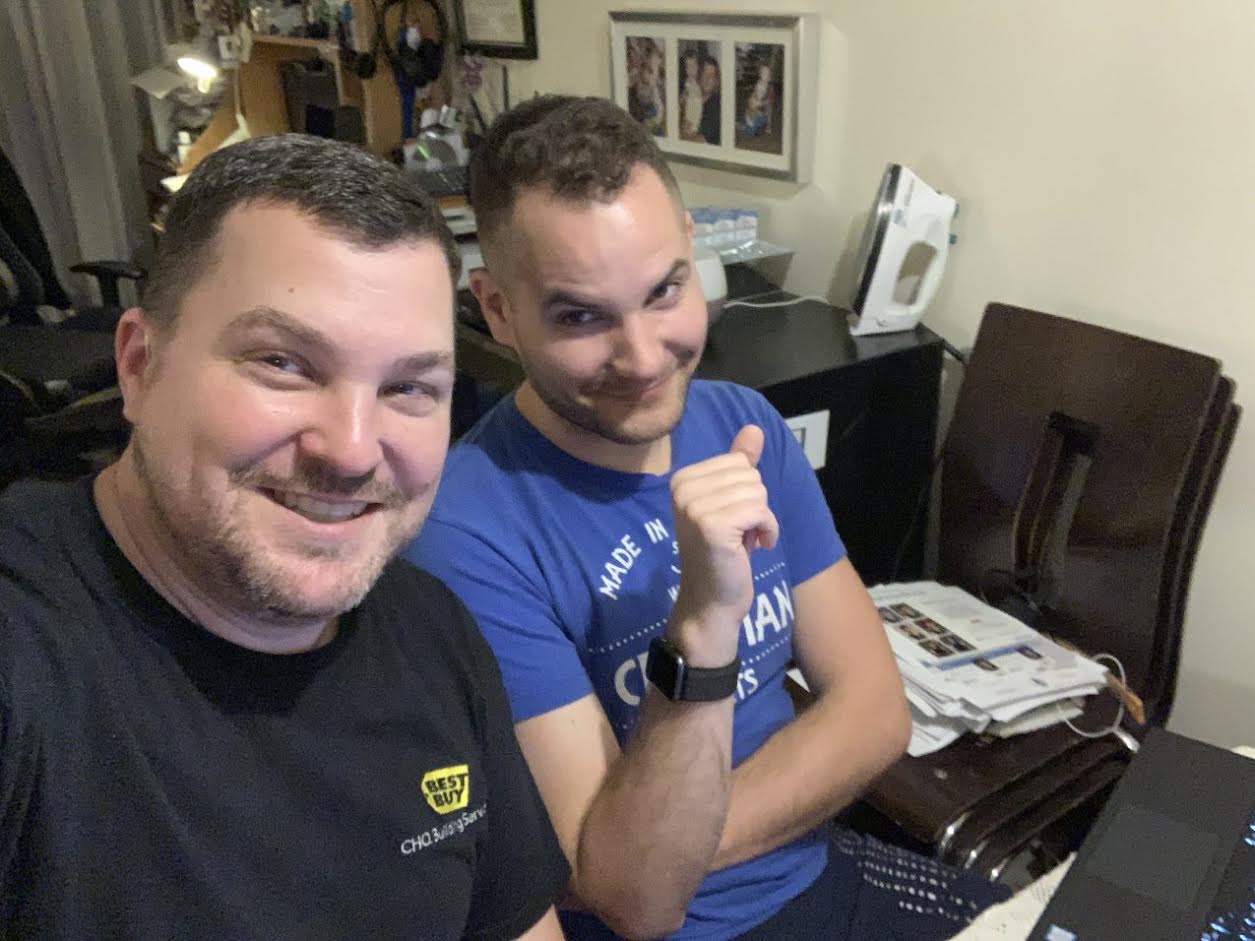
6. You are still here, so obviously, the pros outweigh the cons. Tell us about some of the things that you love about being in Croatia, as well as some of the things you don't like.
Things I love about Croatia:
- The food
- Bura
- Other Croatians
Things that don't excite me about Croatia
- Tourist season because of the crowds and crazy prices
- Always having to carry cash
- Showering in a bathtub
7. What advice do you have for others thinking about making a move from the diaspora?
Try not to overthink it and talk yourself out of doing it. Pretend like it's your only option and really consider all options with the guiding principle of 'what do I want vs. what can I live with'. It won't be perfect; it's not meant to be. You'll need to learn to do more with less, but in the long run, it'll teach you to be more minimalistic, which I don't think is a bad thing. There are lots of groups on different platforms that contain tons of helpful people that want to help. Join these groups and use them to plan your departure from your current country, and I promise you'll meet some great people who may even turn into close friends. Don't downplay the value of learning the language if you're like a native English speaker and me. You'll likely speak Croatian with an accent, but don't let that discourage you. Persevere, and you will enjoy the pleasure of speaking the language which you can use to help yourself and others.
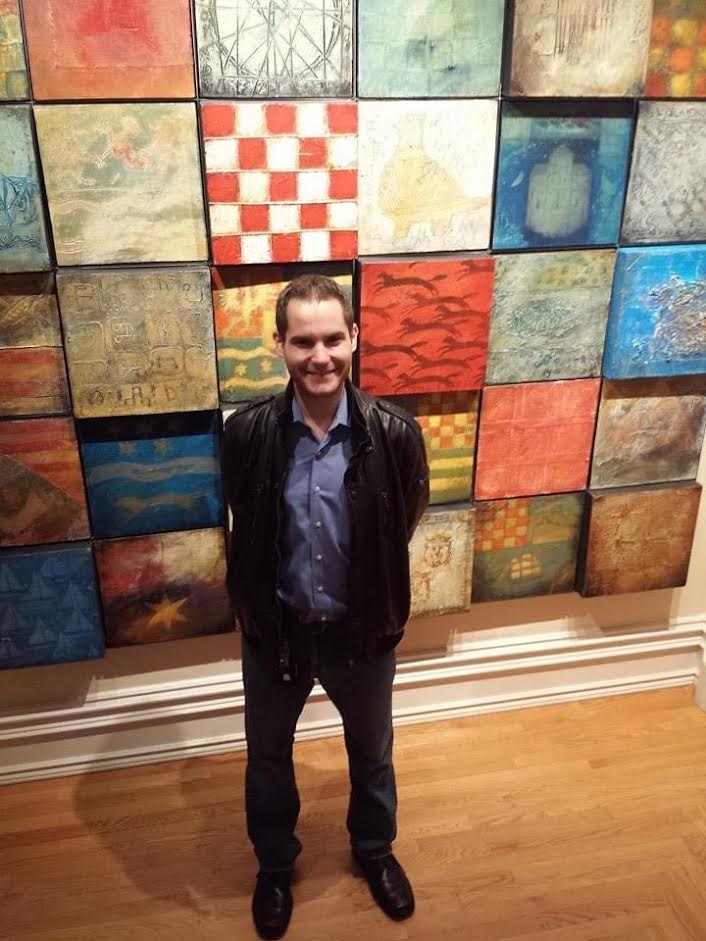
8. How do you think Croatia can better assist those who are looking to return to the Homeland?
Generally, I think Croatia is doing ok in assisting those who are looking to return home. I would personally like to see the citizenship verification process sped up through the consulates if at all possible and continue to digitize processes and procedures both domestically and abroad. More language options for non-native speakers through consulates or options at universities in the major cities would likely be warmly welcomed as well. I personally would attend these to strengthen my foundational knowledge and unlearn certain words like 'fonat' and 'povakumat', which everyone gets a good laugh over when I accidentally use in a sentence. Finally, job placement/opportunities are an area in which I would love to see some improvement, selfishly, however, I know there can't be an improvement if there are minimal job openings in the first place. Perhaps more incentives for companies to open up shop in Croatia would stimulate job postings and in turn, applicants, or a cultural shift in how jobs are posted and salary transparency. Times are tough all over, and knowing if you can afford to apply for and be accepted to a job in advance is becoming crucial in people's job searches, especially with the rising prices of the basics in Croatia.
****
Thanks, Mike!
You can follow more stories in the Croatian Returnee Reflections series in our dedicated TCN section.
Would you like your returnee story - positive or negative - to be featured in this series? Contact This email address is being protected from spambots. You need JavaScript enabled to view it. Subject Returnee.
****
What's it like living in Croatia, and where can you get the best survival tips? TCN CEO Paul Bradbury and TCN Editor Lauren Simmonds have teamed up to publish Croatia, a Survival Kit for Foreigners.
Follow Paul Bradbury on LinkedIn.



